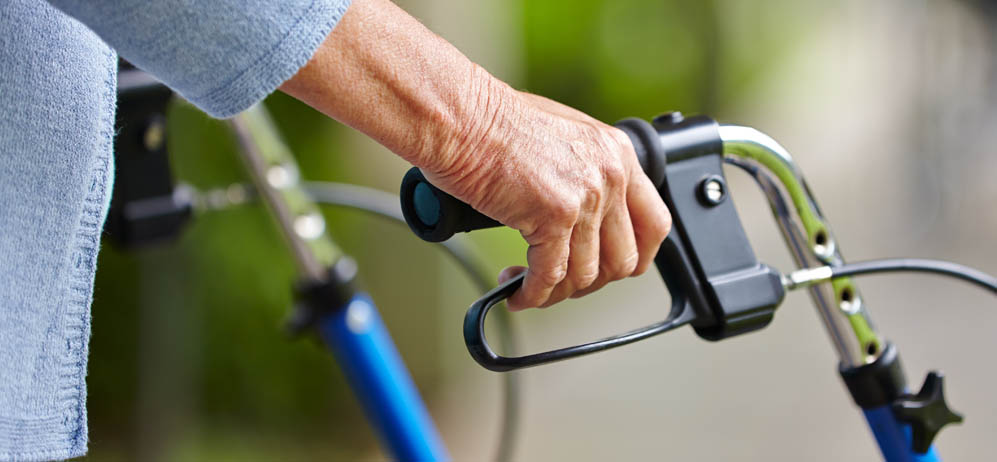Seniors often rely on Durable Medical Equipment (DME) to move around and maintain a degree of independence. Some of this might be paid for by Medicare, but many patients are unable to receive coverage and must bear the full cost of their home care equipment. If this is your reality, then used or refurbished DME is an option that could save you as much as 50% on expenses. But DME purchases must be made with care. Quality equipment can be found with diligence, but sloppy purchases might result in inappropriate or defective DME. Below, we'll go into more detail about the different ways to find used DME, and the things you need to watch out for.
Where to Find DME
From traditional listings to online web stores, elderly patients today have a wide-range of channels to find used home care equipment. Silver Cross, Disabled Dealer, and Planet Mobility are all listings websites with a range of used mobility aids.
Some suppliers, stores, and non-profits also specialize in used or refurbished equipment, such Goodwill Delaware. Likewise, many states run assistive technology centers where seniors and family members can find help managing their disabilities. Examples include New England's NEAT and South Carolina's SCATP
Many independent living centers and home care companies also collect used equipment to be refurbished for aging patients in need.
Warning Signs
The DME needs for each senior will vary depending on their health. In addition, used equipment ranges from high-quality to barely-usable, sanitary to dirty, and well-fitted to completely unsuitable. As such, it's important to follow each step in the below checklist, and make sure your purchase improves life for you or your aging loved one:
-
Evaluate your needs: Make sure you know exactly what type of DME will help your situation. For example, standard canes are meant for balance issues, off-set canes are meant to support more body weight, and walkers are best for seniors who lack upper-body strength. Aging patients with significant mobility issues may benefit from a wheelchair inside the house, or a Power Operated Vehicle (POV, a 3-wheel scooter) outside the house. If you are buying a new piece of DME, then we strongly recommend discussing your needs with a healthcare professional. But if you are simply replacing equipment, then it may be more cost-effective to rely on your own judgment.
-
Measure size: No matter what type of DME you purchase, it must be properly fitted. For example, crutches should be 2-inches below your armpit when standing upright, while wheelchairs should allow patients to sit comfortable with knees at a 90-degree angle and feet just touching the footplate. When looking for used DME, you should always ask sellers for basic measurements of the equipment. If you are buying from a supplier, it is worth asking if they do complimentary fittings for customers. Likewise, assistive technology projects and independent living centers occasionally offer fittings for reduced rates or for free.
-
Assess quality: You should always make sure the equipment is functioning properly. As such, we recommend examining every piece of equipment in-person before making the purchase. For mobility aids, it is obvious when there is a problem. But more complex equipment like nebulizers or oxygen concentrators will require a more thorough inspection.
-
Think about repairs: If your DME breaks down, repair costs could cancel out any savings from buying used or refurbished. Find out who can repair your equipment. Some DME suppliers will fix wheelchairs at a labor rate of $60 to $80/hour, even if you made the purchase somewhere else. Likewise, you should research the manufacturer to see if replacement parts are easy to obtain in your area.
-
Think about hygiene: If you are buying an infusion pump, nebulizer or anything else that must be sanitized, think about how difficult it is to disassemble, clean and reassemble.
-
Ask about return policies or re-sale value. If you need to get rid of your DME for any reason, you will need this information from the supplier or store.
DME is not something you should avoid just because of cost. Used and refurbished homecare equipment can be a great way to improve the quality of life for you or your senior loved one, even when it's not covered by Medicare. Just remember to be cautious, informed and patient. Bad equipment will be useless at best, damaging at worst. But quality equipment is good for your wallet and your health.
Learn more about seniors and DME equipment in our blog post: Mobility and Medical Equipment for Seniors. Get recommendations for local DME vendors near you by reaching out to your local Caring office.


